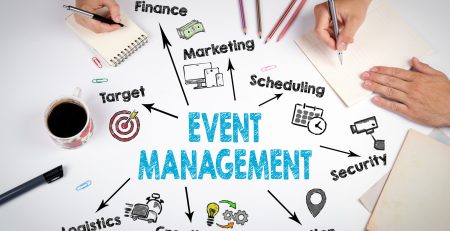Keeping Your Cool: Managing High-Stress Situations During Events
Planning and managing events, whether it’s a wedding, corporate function, or birthday party, can be incredibly stressful. You’re juggling multiple tasks, coordinating with various vendors, and trying to meet high expectations. It’s easy to feel overwhelmed. However, staying calm under pressure is crucial for the success of any event. Here’s a guide on how to manage high-stress situations during events effectively.
Understanding Event Stress
The Nature of Event Planning Stress
Event planning is stressful because it involves a lot of moving parts. Deadlines, budgets, and client expectations are just a few of the elements that can make the process feel overwhelming. The pressure to ensure everything goes off without a hitch can be intense.
Common Stressors
- Time Constraints: Events often have strict deadlines.
- Budget Management: Sticking to a budget while trying to deliver a quality event can be challenging.
- Vendor Coordination: Ensuring all vendors fulfill their responsibilities requires constant communication and follow-up.
- Client Expectations: Meeting or exceeding client expectations adds another layer of pressure.
- Unforeseen Issues: Problems can arise unexpectedly, requiring quick thinking and problem-solving.
Preparing for the Event
Detailed Planning
The more detailed your planning, the less room there is for error. Create a comprehensive event plan that includes timelines, vendor contacts, and contingency plans.
- Timeline: Break down tasks into manageable chunks and set realistic deadlines.
- Vendor List: Keep a detailed list of all vendors, including contact information and delivery times.
- Contingency Plans: Have backup plans for key elements like the venue, weather, and critical equipment.
Clear Communication
Effective communication is vital. Ensure everyone involved in the event knows their responsibilities and the overall plan.
- Briefings: Hold regular briefings with your team to ensure everyone is on the same page.
- Checklists: Provide detailed checklists to team members to avoid any missed tasks.
- Updates: Keep clients updated on the progress to manage their expectations and reduce their anxiety.
Self-Care
Taking care of yourself is essential. If you’re not in a good state of mind, it will be harder to manage the event effectively.
- Rest: Ensure you get enough sleep leading up to the event.
- Nutrition: Eat healthily to maintain your energy levels.
- Exercise: Regular exercise can help reduce stress and improve your mood.
During the Event
Stay Organized
Organization is key to handling stress. Keep all your materials and information easily accessible.
- Event Binder: Create an event binder with all critical documents, including contracts, schedules, and contact lists.
- Digital Tools: Use event management software or apps to keep track of tasks and communicate with your team in real-time.
Delegate Tasks
You can’t do everything yourself. Trust your team and delegate tasks to ensure everything gets done efficiently.
- Assign Roles: Clearly define roles and responsibilities for each team member.
- Trust: Have confidence in your team’s abilities to handle their tasks.
- Support: Be available to provide support and guidance when needed.
Stay Flexible
No event goes exactly as planned. Be prepared to adapt to changes and make quick decisions.
- Quick Thinking: Develop your ability to think on your feet and make decisions swiftly.
- Calm Demeanor: Maintain a calm demeanor, even in the face of unexpected issues.
- Problem-Solving: Focus on finding solutions rather than dwelling on the problem.
Communication
Keep lines of communication open with your team, vendors, and clients throughout the event.
- Regular Updates: Provide regular updates to your team to ensure everyone knows what’s happening.
- Feedback: Encourage team members to communicate any issues or concerns immediately.
- Client Communication: Keep the client informed about the event’s progress to manage their expectations.
Handling Unforeseen Issues
When problems arise, it’s essential to handle them calmly and efficiently.
- Identify the Issue: Quickly identify the problem and assess its impact on the event.
- Stay Calm: Take a deep breath and approach the situation with a calm mindset.
- Find Solutions: Brainstorm possible solutions and choose the best course of action.
- Implement: Act swiftly to implement the solution and mitigate any negative impact.
Take Breaks
Don’t forget to take short breaks to rest and recharge.
- Short Breaks: Take a few minutes to step away from the event area and clear your mind.
- Hydrate: Drink water to stay hydrated and maintain your energy levels.
- Breathe: Practice deep breathing exercises to help reduce stress and refocus your mind.
After the Event
Debrief
Once the event is over, hold a debriefing session with your team to discuss what went well and what could be improved.
- Feedback: Gather feedback from team members, vendors, and clients to identify areas for improvement.
- Celebrate Successes: Acknowledge and celebrate the successes and hard work of your team.
- Lessons Learned: Use the debrief to learn from any mistakes and plan for future improvements.
Self-Reflection
Take some time to reflect on your performance and how you managed stress during the event.
- Personal Reflection: Consider what strategies worked well and what didn’t.
- Self-Improvement: Identify areas where you can improve your stress management skills.
- Rest and Recover: Take time to rest and recover before jumping into the next event.
Tips for Long-Term Stress Management
Continuous Learning
Stay informed about the latest trends and best practices in event management.
- Training: Attend workshops and training sessions to improve your skills.
- Networking: Connect with other event planners to share experiences and tips.
- Resources: Utilize books, blogs, and online courses to continue learning.
Build a Support Network
Having a support network can help you manage stress more effectively.
- Mentors: Find mentors who can offer guidance and support.
- Peers: Build relationships with other event planners to share experiences and advice.
- Professional Help: Don’t hesitate to seek professional help if you’re feeling overwhelmed.
Practice Mindfulness
Mindfulness techniques can help you stay calm and focused.
- Meditation: Practice meditation regularly to reduce stress and improve your focus.
- Yoga: Incorporate yoga into your routine to enhance physical and mental well-being.
- Mindful Breathing: Use mindful breathing techniques to stay calm during high-stress situations.
Time Management
Effective time management can help reduce stress and increase productivity.
- Prioritize: Focus on high-priority tasks and delegate lower-priority ones.
- Schedule: Use a calendar or planner to schedule tasks and deadlines.
- Break Tasks: Break larger tasks into smaller, manageable steps.
Set Realistic Expectations
Setting realistic expectations for yourself and your clients can reduce stress.
- Honesty: Be honest with clients about what’s feasible within the budget and timeframe.
- Boundaries: Set boundaries to prevent overcommitting and burnout.
- Balance: Strive for a healthy work-life balance to maintain your well-being.
Conclusion
Managing high-stress situations during events is challenging but achievable with the right strategies. By preparing thoroughly, staying organized, communicating effectively, and taking care of yourself, you can keep your cool and ensure a successful event. Remember, every event is a learning experience. Use each one to refine your skills and become a more effective event planner.















Leave a Reply